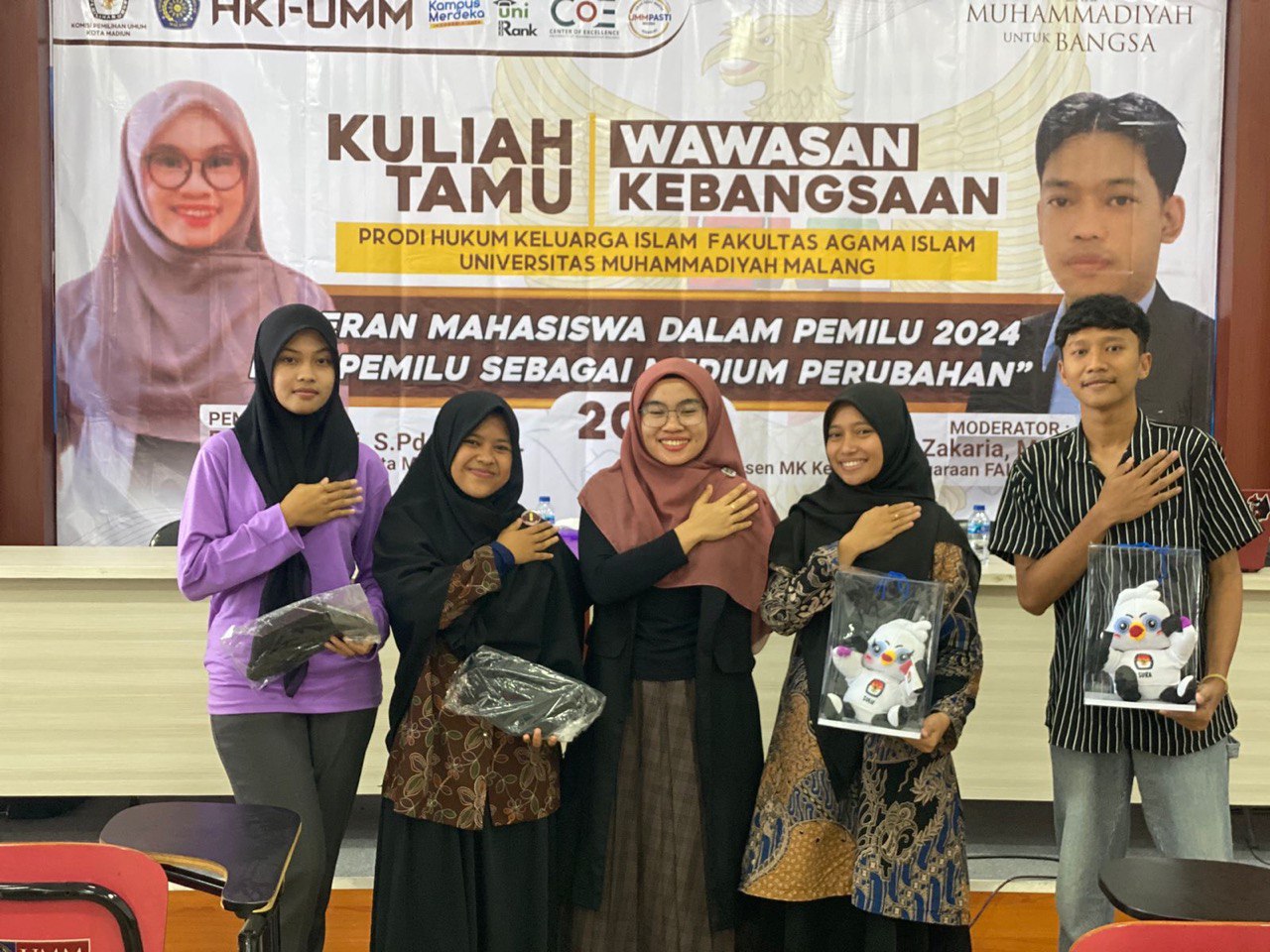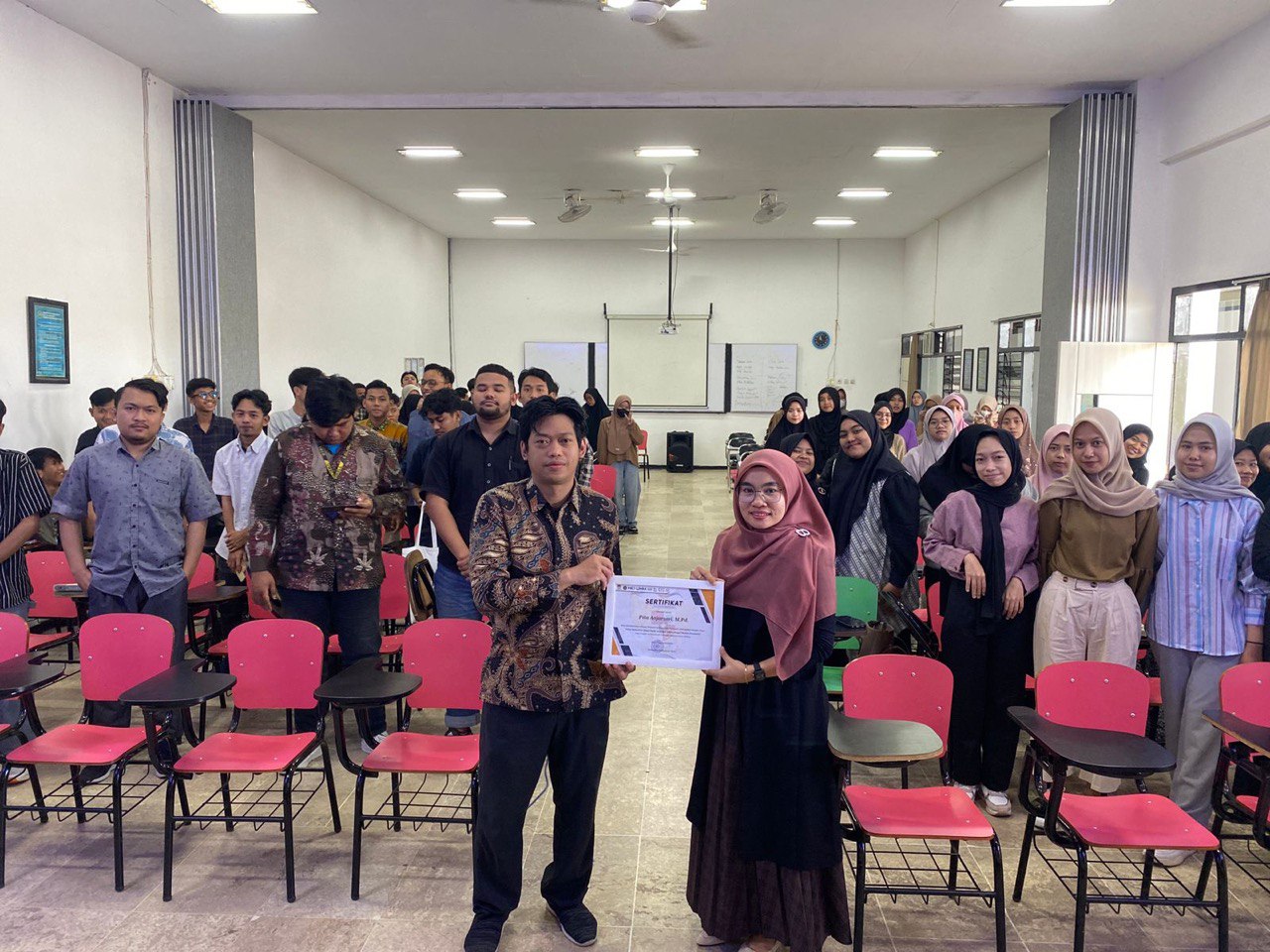
Malang, Saturday, October 14, 2023. The Islamic Family Law Study Program at the Faculty of Islamic Religion, University of Muhammadiyah Malang, held a guest lecture focused on national insight. This guest lecture is a routine academic activity aimed at providing deeper knowledge and inspiring students by offering career journeys, challenges, and successes from experienced speakers.
This guest lecture addressed the issue of national politics, especially with the upcoming general elections in Indonesia, emphasizing the importance of providing students with insights to face the elections. For this session, the HKI program invited KPU Commissioner Mrs. Pita Anjarsari, M.Pd, a practitioner and election implementer from the General Election Commission (KPU). The event was moderated by Soni Zakaria, M.H, a lecturer for the Pancasila and Citizenship Education course.
The speaker explained the importance of electoral education for students: Building Democratic Participation. According to her, electoral education for students is a crucial foundation for building strong and sustainable democratic participation in society. A deep understanding of the general election process is not only important for the continuity of democracy, but also a civic duty for citizens to contribute their voices and thoughts in the political process.

Election education strengthens students' political awareness. It’s not just about recognizing candidates or political parties, but also about understanding important issues, public policies, and their impact on society.
With a deep understanding of the election process, students can encourage active participation. They can become agents of change who motivate fellow students to register as voters and use their voting rights.
Election education builds students' ability to think critically about political information they receive. It helps them sort accurate information from falsehoods, prevents the spread of misinformation, and enhances political intelligence.
Election education also helps build citizenship skills. Students learn how to use their voting rights responsibly and understand that participation in elections is one of the primary ways to voice their interests.
Election education for students is not just about understanding the political process but also about shaping a critical mindset and active participation in democratic life. Through this education, students can become agents of change, contributing to a more politically aware society that actively participates in the democratic process. Therefore, investing in election education for students is an investment in the future of a strong and inclusive democracy.
The guest lecture was attended by hundreds of students from the Islamic Family Law Study Program, who are also taking the Pancasila and Citizenship Education course. At the end of the event, students were given the opportunity to directly engage in a dialogue with the speaker and were awarded prizes for asking questions.